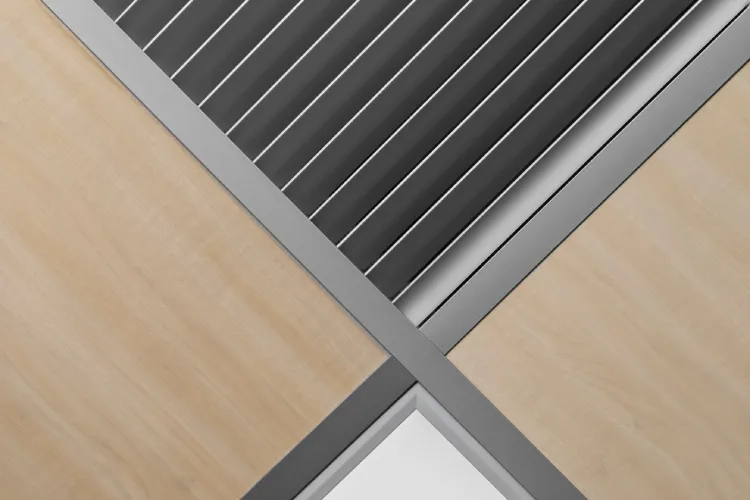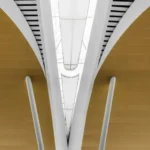In a rapidly expanding and changing world, the demand for efficient and sustainable building materials is on the rise. More and more industries are turning to innovative solutions that can help them meet their construction, design, and manufacturing challenges.
Among the sea of options, using pre-cut and pre-designed PVC sheets has emerged as a convenient and cost-effective solution. PVC, or polyvinyl chloride, is a synthetic plastic polymer that delivers a range of benefits when used for construction and manufacturing purposes.
What Are the Benefits of Using PVC Panels?
So what can you expect from using this particular material? How can it help you meet your construction or manufacturing needs?
1. Cost-Effective Solutions
In today’s competitive market, cost efficiency is a top priority for any business. When it comes to building materials, PVC panels offer a desirable option due to their affordability and long-term durability. Their cost is significantly lower than that of traditional materials such as wood, metal, or concrete. Their low maintenance requirements also save you money in the long run.
2. Versatility and Adaptability
They’re also highly versatile, with a wide range of uses in various industries. They can be cut, shaped, and molded into different sizes and designs to cater to specific requirements. They are also available in a variety of colors, which ultimately gives you the option to customize your projects. Moreover, they can be used for both interior and exterior applications, making them a versatile choice for any project.
3. Easy Installation and Maintenance
PVC panels are incredibly easy to install, saving both time and labor costs. They can be quickly fixed onto the desired surface using adhesives or fasteners, minimizing downtime during construction or renovation projects. Additionally, their non-porous surface makes them resistant to moisture and corrosion, reducing maintenance needs and costs.
All you need to do for maintenance is wipe them down with a mild cleaning solution or water and a soft cloth. They are also resistant to pests, rotting, and fading, making them a durable option that will last for many years without requiring any significant repairs or replacements.
4. Eco-Friendly Option
In recent years, there has been an increased focus on sustainable and eco-friendly practices in the construction industry. PVC panels offer an environmentally-friendly option for building and renovation projects. They’re inherently energy-efficient and require less energy during the manufacturing process compared to other traditional materials.
Plus, they’re recyclable and can be reused for other applications, reducing waste and promoting a circular economy. You no longer have to compromise on sustainability when choosing building materials or worry about the environmental impact of your projects.
What Are PVC Sheets For?
While some may associate PVC sheets with basic plastic products, they go beyond simple household items. Their widely applicable features bring a plethora of benefits to different industries, including:
1. Construction and Building Materials
Internal wall cladding, false ceilings, and doors are just some of the uses for PVC sheets in construction. This is due to its durability, ease of installation, and resistance to moisture and extreme weather conditions. It can also be easily cut, shaped, and molded to fit different design needs.
Before installing the sheets, you need to ensure the walls are smooth, clean, and level. Any electrical switches or power outlets should be removed to avoid hindering the installation process. You should avoid heated areas, as the heat can cause the plastic to expand and crack.
Once you’ve determined the installation area, you should keep the sheets in the same room for at least 24 hours to acclimatize. This will prevent unexpected expansion or contraction of the material
during installation. When this is done, you can install the PVC sheets with adhesive or mechanical fasteners.
As far as false ceilings go, PVC sheets offer a lightweight and easy-to-install option compared to traditional materials like wood or gypsum. They also provide excellent sound insulation properties, making them ideal for use in offices, hotels, and residential buildings.
2. Advertising and Signage
PVC panels are also commonly used in advertising and signage due to their versatility and durability. With the ability to be printed directly, they make great options for outdoor banners, posters, billboards, and even vehicle wraps. Their weather-resistant properties make them a long-lasting choice for outdoor advertising.
In addition to printing on the surface of PVC sheets, they can also be cut into different shapes and designs using specialized equipment. In this way, they can create dynamic and eye-catching displays for businesses and events. Their lightweight nature also makes them easy to transport and install, making them a practical choice for temporary signage needs.
3. Packaging
If you take a look at any grocery store, you’ll likely find many products packaged in PVC materials. This can range from food items like meats and cheeses to household products like cleaning supplies and toiletries. PVC’s strength and durability make it an ideal choice for packaging that needs to withstand transportation, handling, and storage.
In addition to being a sturdy option, this material is also known for its versatility in terms of design. It can be easily molded into different shapes and sizes, so you can use it for larger items like furniture or smaller products like cosmetics. Its smooth surface also allows for high-quality printing, making it ideal for product labels and branding.
4. Automotive and Boating Industries
This material’s resistance to water and chemicals makes it a common choice for the automotive and boating industries. It is often used in parts such as dashboards, door panels, and seat covers due to its durability and ability to withstand harsh environments.
Additionally, PVC materials are also commonly used in boat building for flooring, upholstery, and even hull construction. Its lightweight nature helps reduce boats’ weight, making them more fuel-efficient. And with technological advancements, they can now be made into high-quality synthetic leather options that replicate the look and feel of genuine leather.
5. Healthcare
Marking off hazardous areas in hospitals, clinics, and laboratories is a important step in ensuring the safety of patients and healthcare professionals. PVC materials can create temporary signage that warns of potential hazards, such as biohazard symbols or caution signs.
Moreover, it’s also a popular material for medical tubing and equipment due to its flexibility, low cost, and ability to withstand chemicals and high temperatures. Its use in these applications helps maintain sterile environments and prevent contamination.
Conclusion
PVC sheets have emerged as a versatile, cost-effective, and sustainable solution for a wide range of industries. Their unique properties – including durability, adaptability, ease of installation and maintenance, and eco-friendliness – make them an attractive choice compared to traditional materials. From construction and advertising to packaging, automotive, and healthcare, PVC panels offer benefits such as moisture resistance, customizability, strength, and the ability to support sterile environments.
As the world increasingly prioritizes sustainability, PVC sheets align with this shift. They consume less energy to manufacture and can incorporate recycled content, helping buildings achieve higher energy efficiency. With the construction industry being a major polluter, PVC panels offer a greener path forward. As part of a holistic approach emphasizing sustainable sourcing, efficient material use, and renewable energy, PVC sheets exemplify how innovative materials can support economic growth while reducing environmental impact – a important balance in an era of climate change.




No Comment! Be the first one.